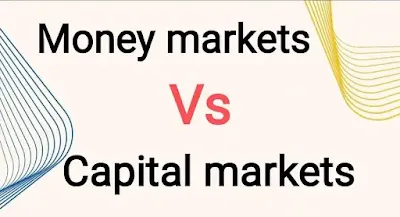Money markets vs capital markets
What is money market?
The money market is used for short-term borrowing and lending, usually with maturities of less than one year. It is used by governments, financial institutions, and large corporations to raise funds for short-term needs such as working capital or cash management. Instruments used in the money market include Treasury bills, commercial paper, and certificates of deposit.
Some common instruments traded in the money market include:
- Treasury bills: These are short-term debt securities issued by the government, with maturities of typically less than one year. They are considered to be very safe investments and are often used as a benchmark for other short-term interest rates.
- Commercial paper: This is a short-term unsecured promissory note issued by corporations, usually with maturities of less than 270 days.
- Certificates of deposit (CDs): These are time deposits offered by banks and other financial institutions, with maturities ranging from a few days to a year or more.
- Repurchase agreements (Repos): This is a method of borrowing money in which a financial institution sells securities to an investor with the agreement to repurchase them at a later date.
The money market is considered to be a low-risk and low-return investment compared to other markets like the stock market. It's often used by investors as a place to park cash temporarily or to invest funds that will be needed in the short term. The money market also serves as a source of short-term funding for banks and other financial institutions, and it plays an important role in the overall functioning of the economy by helping to ensure the stability of short-term interest rates.
What is capital market?
The capital market is used for long-term borrowing and lending, usually with maturities of more than one year. It is used by companies and governments to raise funds for long-term projects and expansion. Instruments used in the capital market include stocks, bonds, and long-term loans. The capital market also includes secondary markets, such as stock exchanges, where securities are bought and sold.
Instruments traded in the capital market include stocks, bonds, and long-term loans. Stocks represent ownership in a company and are traded on stock exchanges. Bonds are debt instruments that represent a loan to a company or government. Long-term loans are provided by financial institutions such as banks.
The capital market also includes secondary markets, such as stock exchanges, where securities are bought and sold after they have been issued in the primary market. Secondary markets increase the liquidity of securities, making it easier for investors to buy and sell them.
In summary, the capital market deals with long-term borrowing and lending. The money market is typically used by governments, financial institutions, and large corporations to raise funds for short-term needs, while the capital market is used by companies and governments to raise funds for long-term projects and expansion.





